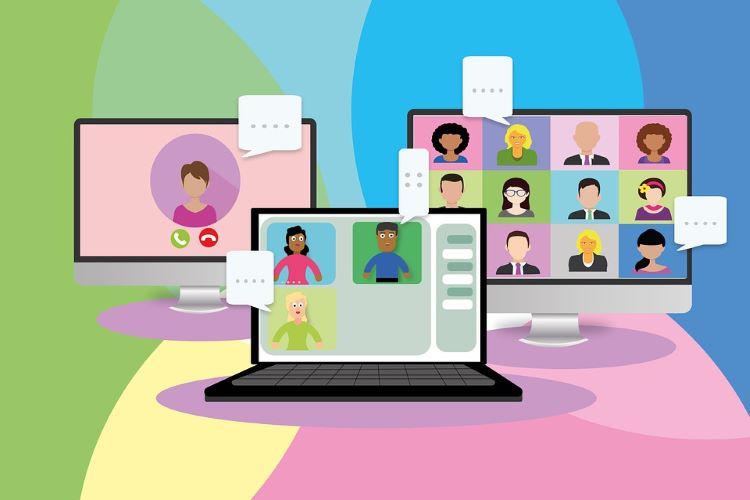Access to digital learning tools has resulted in a revolution in classrooms ranging from K-12 to colleges and universities. Online learning has proven to be an essential resource for educators and classroom teachers, enabling a new form of knowledge sharing in which students have the resources to learn at their own speed.
This student-centred method is unusual in that students now have a say in their educational path, maximising both instructional resources and time. Read on to learn about some essential strategies for online teaching.
Strategies for Online Teaching
How to improve online teaching skills? Here are some strategies for online teaching that you can follow:
Know the Technology
Since this is all new to everybody, be prepared to troubleshoot and communicate with your students that you are working on it. Give yourself an hour to familiarise yourself with the tools.
Currently, the majority of businesses offer further training. Make it abundantly clear to students where they must go for technical support. Make your personal information available, and be ready to direct them there if they engage you.
Expect the Unexpected & Remain Flexible
Technology will fail at some point, whether it’s a web conference that won’t connect or coursework and/or material links that don’t work properly. Prepare a backup plan for any assignments or tests that rely on technology.
Discuss technology failures with students in an open and honest manner. Put in place a guideline outlining what students can do if they are unable to complete tasks due to technological issues, for example.
To save time, don’t be afraid to deal with technology issues in real-time, such as during synchronous conversations or collaborative real-time work.
Also Read: How to Earn INR 50k Every Month by Teaching Phonics? Top Online Teaching Jobs in India
Create & Maintain a Strong Presence
Send a message, preferably via video, to all learners to welcome and reassure them about online courses. When communicating with children, video chat should be used instead of traditional instant messaging.
Begin discussions in the discussion forum and then respond to topics in a timely, frequent, and open manner to get students talking. Use nonverbal communication techniques like emojis. Personal and professional aspects should be included in your profile.
Set Clear Expectations for the Course
In addition, students are inexperienced with online learning. Explain to students how their course grades will be determined today. Set a deadline for responding.
Make it clear that you will respond to emails within one working day, for example; otherwise, students may expect you to respond to a message within several hours and will disengage if you do not.
Students should be given materials on how to be successful online learners. One is from a teacher, and the other is from a university student.
Establish a Sense of Comfort
Students expect you to be the standard-bearer. Humanize yourself by including a greeting video, a biography, photographs telling stories about what you’re doing something to stay active during social exclusion, media links, articles, short movies, and so on.
Encourage students to personalise their homepages and spend some time walking around the classroom asking students to share information about what they have written. Incorporate instant messaging, cameras, blogs, and vlogs.
Use questions that help people to question one another to foster a rich dialogue. Instead of addressing individual individuals from outside the group, engage the group as a whole.
Encourage Contemplation and Dialogue
Revert to previously posted concerns that were not fully addressed, and encourage involvement and thought. Monitor interaction and contact students directly if they are not participating or are taking over discussions and not allowing others to contribute.
Good Mix of Active Leader and Active Observer
As the teaching community administrator, you will begin the course. As the course progresses, gradually assign duties to the student community. The steps outlined in point 4 for establishing an online community will help with this. You should also gradually disengage from community discussions.
Also Read: Online Teaching Jobs from Home: Top 5 Online Teaching Platforms in India
What are the Benefits of Teaching Online?
Individual Pace
Online learning options provide instructors with much-needed effectiveness, allowing them to optimise the potential for individualized education curves and styles inside the classroom. Many online learning systems allow for self-paced learning and allow teachers and students to collaborate to reach predetermined goals.
Application of Theory
Children, teens, and students are receiving information and news on the web more than ever before, as well as connecting, sharing, and swapping ideas and thoughts via technology.
Online learning allows teachers to delve into this domain of continuous learning by adopting real-world application of theory via multimedia, video, chat, and engagement. Educators can effectively use commonplace technology to bring teaching methods into the classroom.
Practicality
In today’s world of global economic and political volatility, federal and provincial/state education funding is frequently slashed. Digital learning is an excellent technique to compensate for limited access to teaching materials and time spent tracking student progress.
Teachers’ practical advantages can be quantified in terms of time-based initiatives and workload reduction. Using an LMS, for example, enables teachers to swiftly design tests and quizzes from a pre-existing or ever-expanding question library.
LMS technology also allows for the automated marking of tests and quizzes. Practical advantages include the ability to monitor digital assignment submissions and reuse or rebuild course content using fresh course templates.
The Way of the Future
For instructors, online learning has numerous advantages. It is estimated that by 2019, at least half of all post-secondary courses will be supplied online, providing educators with schedule flexibility and cost-effectiveness, and also access to new learning environments and the chance to learn from renowned educators located around the world via long-distance education.
Integrated approaches to online learning in primary school settings give both teachers and students access to a wide range of current teaching/learning technologies and resources.
Access to Training
Good teachers enjoy teaching, but the best educators also enjoy the opportunity to learn on a regular basis. Teaching with online learning materials as a means of updating and polishing one’s teaching approach encourages teachers to continually improve their game, making the work experience a daily task.
What are the Online Teaching Skills?
Communication Skills
Concise, clear instruction is required in an online learning environment. Educators who have previously used face-to-face classroom education methods may need to improve their writing communication skills. Communication with children requires the ability to use images, videos,, and digital audio files.
Interactions with students and parents are increasingly reliant on texting, email,, and voice messaging. Instead of meeting face to face for parent-teacher meetings and student tutoring, online teachers frequently use a camera setup.
Technological Literacy
Online teachers will also need to learn Web-based educational system-specific skills and expertise. Teachers must be able to demonstrate competence in the following six areas:
Complete understanding of technology accessibility needs for classroom and online instruction.
The ability to assess Internet resources.
Understanding the various facets of copyright protection and infringement.
Modelling and maintaining proper internet etiquette and policies.
Creating and implementing effective lesson plans for online students.
Capability to troubleshoot minor technical problems and, when necessary, turn to technical support professionals.
Time Management Skills
In an online learning setting, time management is much more important than in a regular classroom. The info on the Internet is always changing. Teachers must be able to analyse information and update course materials as needed in order to provide students with timely, relevant knowledge.
Furthermore, instructor comments should be given to students as quickly as possible. Assignments must be evaluated within a week of being submitted. Giving students a rubric with relevant feedback for tasks encourages them to review their effort and pose questions about the subject matter as the semester develops.
Students enrolled in online classes do not necessarily attend class during regular school hours. It is critical to schedule conference and office hours at the night and on weekends.
Assessment and Evaluation Skills
Online teachers must be able to appropriately assess student achievement. Teachers will “take roll” by checking class access, reading discussion threads,, and assessment data. In a digital education context, new strategies for identifying learning challenges and other factors that affect academic success are required.
Teaching Students to Apply the Concept
Some students may have difficulty remembering knowledge taught in an online course. An effective online teacher must have the ability to create compelling course content that motivates and inspires students to actively participate.
Interaction, timely, relevant extra readings,, and group activities all help to promote retention. Teachers must understand how to assist pupils in fully engaging based on their specific learning abilities.
Supportive administrators, appropriate training and education, engagement with peers and mentors skilled in online education delivery methods, and a continuous professional development programme oriented toward educating today’s instructors are all necessary tools for online teachers.
The academic achievement of students is dependent on experienced, highly motivated instructors in both traditional and online courses.
Conclusion
The secret to effective online teaching is for teachers to adjust classes to fit an online model rather than simply trying to reproduce a class that would have been learned in the class. Similarly, teachers must continue to have high expectations of students, just as they would in the class, and guarantee that kids exceed these standards through involving parents.





